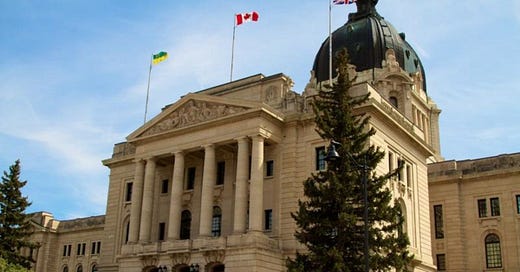The Canadian Charter of Rights and Freedoms needs to be rehabilitated. The COVID-19 regime caused enormous damage to individual rights and their protections in Canada. But nothing is forever, and citizens and their governments can push for the Charter to be rehabilitated. That can be done by insisting that Charter rights are respected and enforced. What we don't need is false panic and fictitious rights.
Canadian Law acknowledges the rights of parents as principal decision-makers for their children's education and moral development. In situations of abuse, there already is a battery of mechanisms to protect children. These include counsellors, law enforcement, courts, and various family services. Governments uphold existing parental rights and also protect children in exceptional circumstances, but governments are not enemies of parents nor are they against children.
None of this means that children have no rights nor that children's rights are disappearing. Those are weaponised claims one is likely to hear from the coalition government in Ottawa, who seem to be pitting parents against the rights of children. But without getting into legal weeds, it suffices to say that none of the rights children may have erase those of their parents.
Similarly, governments have the right to make decisions in the constitutional areas that the Constitution grants to them. Areas such as family and social affairs are regulated by provinces and not the federal government. Only provincial governments can make laws and policies regarding family affairs.
Courts may review policies or laws in cases of government disputes or citizen concerns about rights and freedoms. In such cases, courts can suspend a policy or legislation. Knowing that courts have this power, rights-seekers often litigate rights demands, instead of handling them in the political arena. This strategy of litigating in the courts to push governments to do what governments may not want to do has been well exploited in Canada since the advent of the Charter of Rights.
But the Canadian Charter also includes a provision known as the 'notwithstanding clause,' which is Section 33 of the Charter. As such, the notwithstanding clause is part of the Charter, which is part of the Constitution. Its use, however sporadic, is not a violation of the Charter or the Constitution as many wrongfully argue. Nor is the Charter being eviscerated when section 33 is applied, as columnist Andrew Coyne said. Mr. Coyne doesn’t seem to remember that Saskatchewan last used the Notwithstanding Clause six years ago in 2017, in a case also related to the education system (and the sky did not fall then either!).
Keep reading with a 7-day free trial
Subscribe to Haultain Research to keep reading this post and get 7 days of free access to the full post archives.




